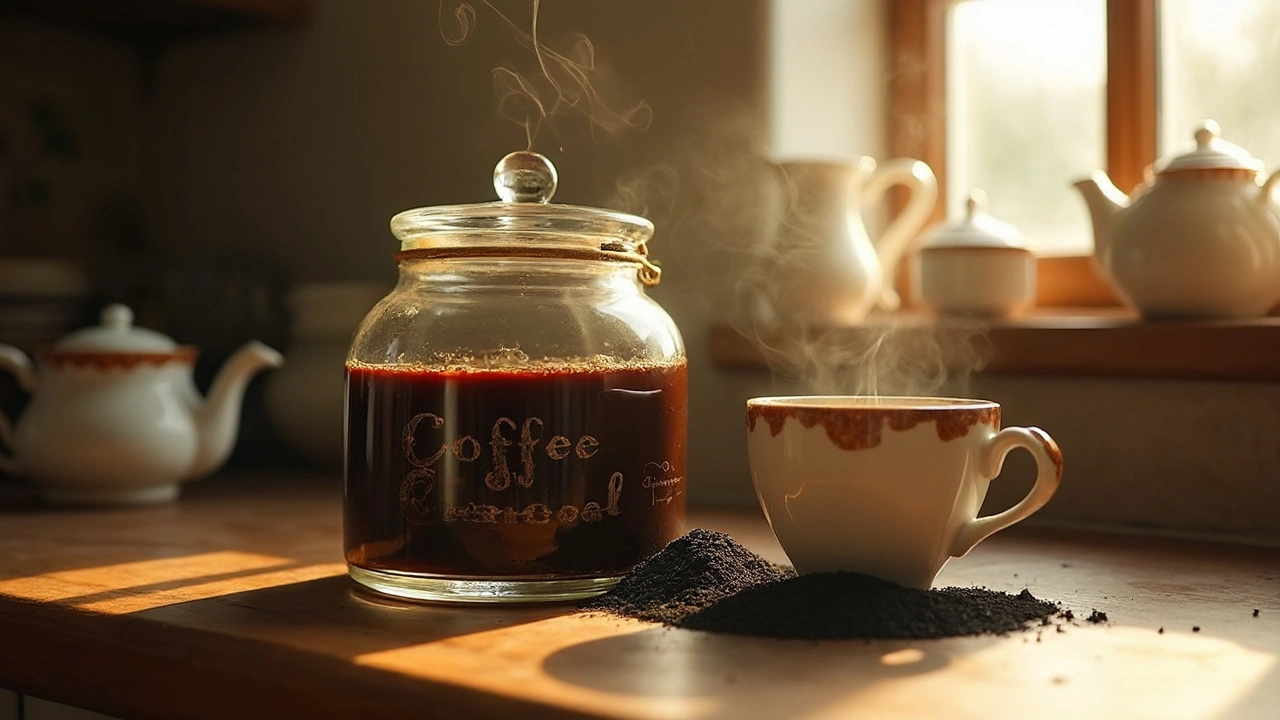Coffee charcoal: what it is and why people reuse coffee grounds
Have leftover coffee grounds piling up? Turning them into charcoal or biochar is a clever way to cut waste and get something useful. "Coffee charcoal" usually means two things: simple charred coffee grounds used as a soil amendment or activated charcoal made from coffee for filtration and odor control. They’re not the same, and the difference matters for safety and performance.
What coffee charcoal is and how it works
Charred coffee grounds (biochar) are made by burning organic material in a low-oxygen environment. That creates a stable, porous carbon that holds water and nutrients in soil. Activated coffee charcoal goes further: it’s processed under high heat or treated chemically to open up lots of tiny pores. Those pores trap chemicals, odors, and some impurities. True activation happens in industrial settings, so homemade activated charcoal won’t match store-bought products.
Use cases are simple and practical. Gardeners mix coffee biochar into potting soil to improve drainage and nutrient retention. Around the house, dried charred grounds can absorb bad smells in a fridge or trash bin. Activated charcoal products are sold for water filters, air purifiers, and some health products — but buy the right type for the job.
Safe DIY tips and where to use coffee charcoal
Want to reuse grounds safely? Here are sensible, low-risk steps: dry used coffee grounds thoroughly to stop mold, then heat them slowly in a covered metal container outside (small barbecue or metal can with a few holes) until they look black and dry. This makes basic biochar — good for soil but not for filtration or ingestion. Always cool and handle with gloves; carbon dust irritates the lungs and eyes.
Practical uses you can try today:
- Garden boost: mix 5–10% dried coffee biochar into potting mix to help retain moisture and slow nutrient loss.
- Odor control: place dried charred grounds in a breathable bag for the fridge, shoes, or gym bag.
- Compost helper: a small amount of biochar in compost can reduce smell and improve final compost quality.
What to avoid: don’t inhale charcoal dust, don’t use home-made charcoal for medical or dental purposes, and don’t try chemical activation at home — it’s dangerous. If you need activated charcoal for water filtration or health uses, buy a product labeled for that purpose and follow instructions.
Reusing coffee grounds as char or biochar is an easy eco win when done carefully. It cuts waste, helps plants, and gives you a low-cost odor absorber. If you want high-performance activated charcoal, stick to commercial products — they’re safer and more effective.

